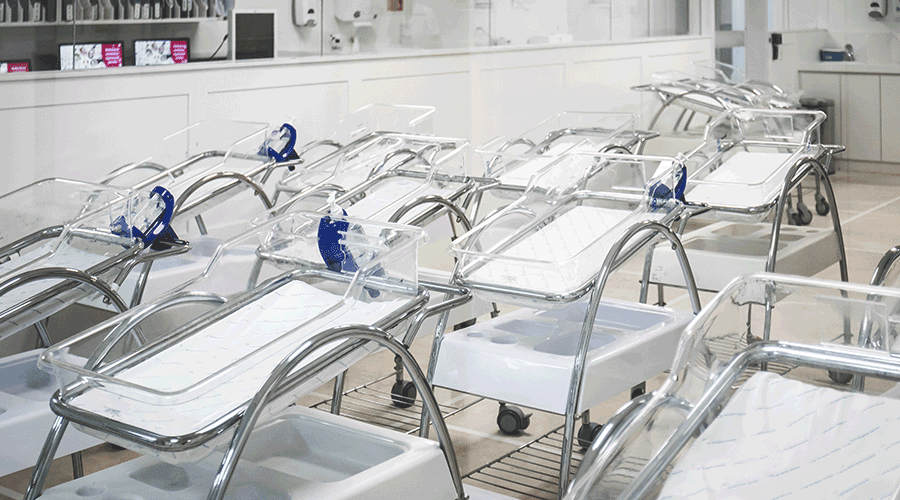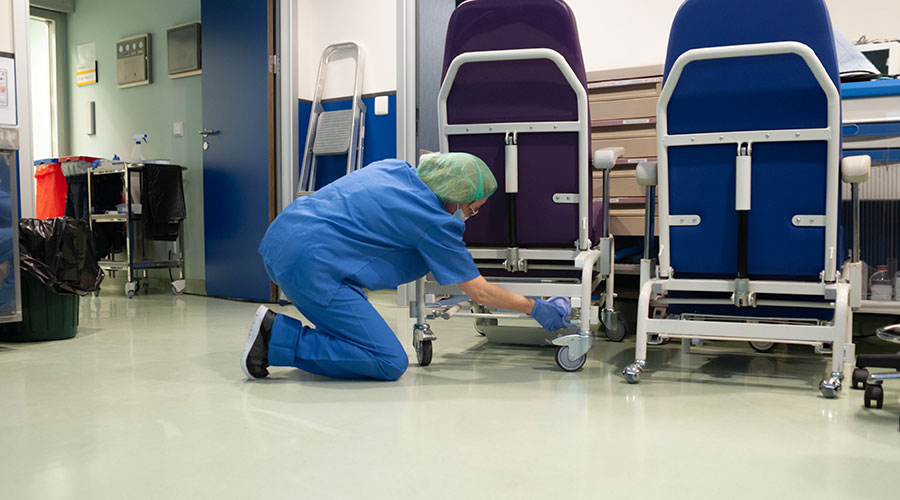There has been an uptick of flu, respiratory syncytial virus (RSV) and COVID-19 cases in children. During the week of Nov. 30, flu hospitalizations in the United States increased 30 percent, and that number is expected to increase during winter.
Last month, the American Academy of Pediatrics and Children’s Hospital Association sent a letter to President Joe Biden and U.S. Department of Health and Human Services Secretary Xavier Becerra asking for an emergency declaration to support a national response to the surge of pediatric respiratory illnesses and the continuing children’s mental health emergency.
"We are making this urgent request now because the crisis unfolding across the country warrants immediate, comprehensive action from the federal government,” wrote Mark Del Monte, CEO of the AAP. “We must address longstanding underinvestment in Medicaid and increase payment rates to at least what Medicare and private insurance pay for the same services. Pediatricians are rising to this challenge once again, but we need federal action to allow the flexibilities and resources to support this care. And we need to remain focused on how this emergency is disproportionately impacting historically under-resourced communities."
Dual emergency declarations would allow waiver of certain Medicare, Medicaid and Children’s Health Insurance Program requirements so healthcare facilities can share resources in coordinated efforts to care for the community and have access to emergency funding to keep up with increased demands.
But the increase of the trio of cases have created a new problem for healthcare facilities: a shortage of medical-grade cribs, according to CNN.
Corewell Health has ordered more than 50 cribs and has brought out specialized and non-specialized cribs from storage to meet the growing demand. Meanwhile, manufacturers of medical-grade cribs, bassinets and youth beds also seen increased demand.
“Since we make our products to order for each hospital customer, this spike in demand (especially after the very limited demand during the two years of COVID) has been a challenge for us to maintain our typical turnaround times,” Hard Manufacturing President Marjorie Bryen tells CNN. “We are working overtime to meet the demand as best we can. Maintaining a high-quality product is critical, and cutting corners is not an option.”
At the time of publication, the Biden Administration has yet to declare a public emergency for RSV or flu.
Mackenna Moralez is the associate editor of the facilities market.

 Seeking Standards for Microbial Loads in Healthcare Facilities
Seeking Standards for Microbial Loads in Healthcare Facilities UCR Health Unveils Plans for Major Expansion
UCR Health Unveils Plans for Major Expansion High-Performance Windows Support Safety at UW Medicine's New Behavioral Health Center
High-Performance Windows Support Safety at UW Medicine's New Behavioral Health Center Central Maine Healthcare Dealing with IT System Outage
Central Maine Healthcare Dealing with IT System Outage Kaiser Permanente Opens Newly Expanded Everett Medical Center
Kaiser Permanente Opens Newly Expanded Everett Medical Center